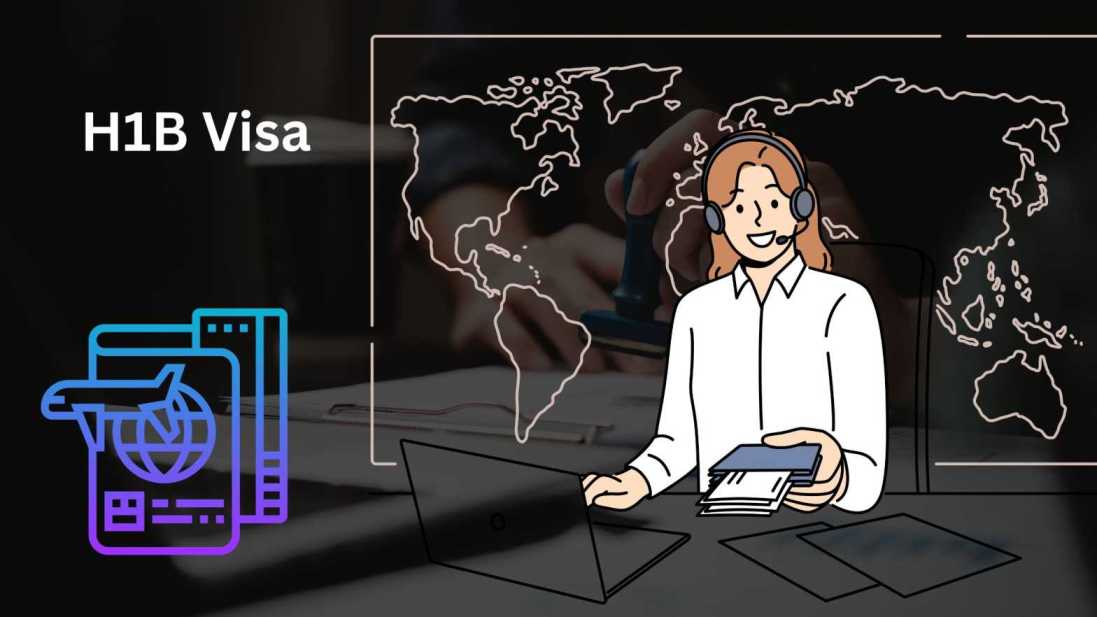Understanding the H1B Visa: A Comprehensive Guide
The H1B visa is one of the most sought-after visas for skilled foreign professionals aspiring to work in the United States. Issued by the U.S. Citizenship and Immigration Services (USCIS), it is a non-immigrant visa that allows U.S. employers to temporarily employ foreign workers in specialty occupations. Here, we delve into all the essential aspects of the H1B visa, including eligibility, application process, benefits, and challenges.
What is the H1B Visa?
The H1B visa enables U.S. companies to hire foreign nationals for positions that require specialized knowledge and expertise. These positions typically demand at least a bachelor’s degree or its equivalent in fields like IT, finance, engineering, mathematics, science, healthcare, and more.
Eligibility Requirements
To qualify for an H1B visa:
- Specialty Occupation: The job must require theoretical and practical application of a body of specialized knowledge.
- Educational Qualifications: The applicant must possess a bachelor’s degree or higher in the specific field related to the job.
- Employer Sponsorship: A U.S. employer must sponsor the visa.
- Labor Condition Application (LCA): The employer must file an LCA with the Department of Labor to attest that hiring the foreign worker will not negatively affect the wages and working conditions of U.S. workers.
Key Features of the H1B Visa
- Duration: Initially granted for three years, extendable up to six years.
- Dual Intent: Allows holders to apply for a green card (permanent residency) while on an H1B visa.
- Dependents: H1B visa holders can bring their spouse and children under 21 years through an H4 visa.
- Cap Limit: Annually, there is a cap of 65,000 visas, with an additional 20,000 for individuals holding advanced degrees from U.S. institutions.
Application Process
- Employer’s Role:
- The employer must file a petition (Form I-129) with USCIS on behalf of the employee.
- Obtain an approved LCA from the Department of Labor.
- Filing Period:
- The H1B filing season begins on April 1 each year, with employment starting on October 1.
- H1B Lottery:
- If applications exceed the cap, USCIS conducts a random lottery to select eligible petitions.
- Approval:
- Upon approval, the foreign worker can apply for an H1B visa stamp at a U.S. consulate in their home country.
Benefits of the H1B Visa
- Career Opportunities: Provides access to a broad range of professional opportunities in the U.S.
- Pathway to Permanent Residency: Offers a stepping stone to obtaining a green card.
- Dependents’ Rights: H4 visa holders can study, and in some cases, work in the U.S.
- Global Mobility: Enables holders to travel internationally and re-enter the U.S. with valid documentation.
Challenges and Considerations
- Highly Competitive: The demand for H1B visas often exceeds the annual cap.
- Job Dependency: The visa is tied to the sponsoring employer, limiting job mobility.
- Strict Compliance: Employers and employees must adhere to USCIS regulations to avoid penalties or visa revocation.
- Processing Delays: Lengthy processing times can disrupt plans for both employers and employees.
Alternatives to the H1B Visa
For those who do not qualify or miss the H1B cap, other options include:
- L1 Visa: For intra-company transferees.
- O1 Visa: For individuals with extraordinary ability.
- OPT and STEM OPT: For students on F1 visas.
- TN Visa: For Canadian and Mexican nationals under NAFTA/USMCA.
Recent Updates and Trends
In recent years, changes in immigration policies and economic factors have influenced the H1B landscape. Applicants are encouraged to stay updated on USCIS announcements, as rules and procedures may evolve.
Conclusion
The H1B visa offers tremendous opportunities for skilled professionals to contribute to the U.S. economy while gaining valuable experience. However, understanding the intricacies of the application process and staying informed about regulatory updates is crucial for a successful journey. For employers and aspiring applicants, consulting with immigration attorneys or specialists can provide invaluable guidance.
By navigating the H1B visa process with preparation and awareness, both employers and employees can unlock mutual growth and success.

